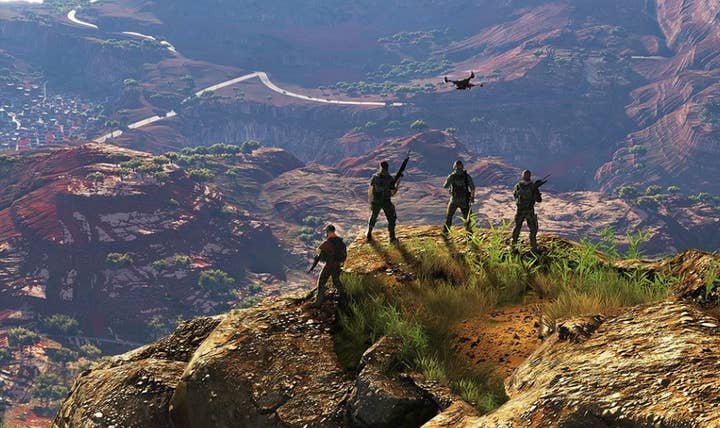Ubisoft on politics in games: "We know we're not taking it far enough"
Editorial VP Tommy François says he wants future games to better represent multiple viewpoints on the world
In the ongoing discussion about the handling of political topics in AAA games, a Ubisoft VP has acknowledged that the publisher could be doing more with its titles.
Ubisoft is often at the centre of this discourse thanks to the settings and tones behind games like The Division 2 and Far Cry 5, which speak to real political tensions in the world -- and particularly America -- today.
In an interview with Kotaku, VP of editorial Tommy François admitted that Ubisoft is holding back.
"I do see that we're being challenged on politics," he told the site. "It hurts me, because we know there's a disconnect between where we want to take games years down the line and what we're doing on a day-to-day basis."
When discussing the criticism Ubisoft has received in the past couple of years in how it handles topical issues, François said: "I was annoyed by the fact that we weren't given more forgiveness for not being perfect.
"We know that. We know we de-scope. We know we're not taking it far enough."
Throughout the interview, François said the publisher wants to present multiple perspectives on the scenarios it explores.
One example given was Ghost Recon Wildlands, which saw players trying to dismantle the empires of Bolivian drug lords. Earlier this month, one of the game's writers Lewis Manalo wrote for GamesIndustry.biz, discussing the negative reception the game received.
"Many players struggle with understanding that the narrative is not the kind of apolitical, superficial narrative that they were sold," he wrote. "Many struggle to understand that though some characters are ridiculous and that they make jokes, the story itself is not a joke. In some Ghost Recon forums, the writing of Wildlands has become the subject of deep debate."
François explained that during its research for this game, Ubisoft learned that some people are selling drugs for survival in a poverty-stricken nation and to earn money to feed their children (as an example of the types of viewpoint it wants to showcase).
However, Kotaku points out that this perspective only comes across in a handful of audio logs or collectibles, whereas the vast majority of the game focuses on the perspective of the American special forces you play.
"I don't think we invented enough means of communication with the player to get everything we wanted through," François said.
The conversation brings to mind recent comments from Call of Duty developer Infinity Ward, whose directors said Modern Warfare does not have a political message and hinted that it will demonstrate multiple perspectives on real-world conflicts.
Historically, Call of Duty games have always been played from a US and British perspective. There has been little insight into Modern Warfare's campaign, so it's unclear if this will change.
François emphasised multiple times that Ubisoft needs to be careful not to push one particular perspective or agenda.
"The goal... is not to be preachy. It's to showcase."
François comments echo his previously stated stance on the subject. In a Q&A earlier this year, he said Ubisoft aims to make "more mature games that are nuanced," which means leaving players to form their own opinions about the subjects its games explores.
François pointed to Watch Dogs Legion as an indication of how Ubisoft will handle games that explore political topics in future. The game is set in a dystopian Britain, one that has become a surveillance state, widely described as a post-Brexit scenario.
Rather than taking on a specific character, players can play almost every NPC in London, shifting perspective when they die or need a different set of skills. François reiterated the publisher's aim to explore subjects through multiple viewpoints, adding Legion is "a step in that direction."
Creative Director Clint Hocking has previously said that Legion "has a message for sure" -- that politicians won't save us all, that ordinary people should be "putting aside our differences and fighting back against things that are obviously wrong."
However, European boss Alain Corre later reiterated the publisher's more neutral stance, saying: "We're not there to tell them what they have to think at all. What we want is to offer possibilities to explore new ways of behaving, new ways of exploring, and at the end of the day they make their own minds up."
There are further examples from François in Kotaku's full interview.

